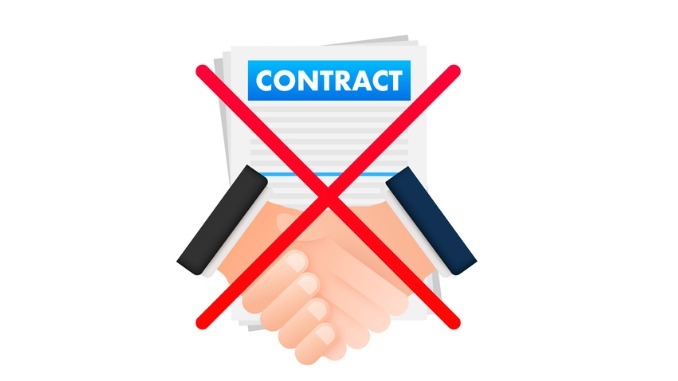As reported by GP Online, The British Medical Association (BMA) has voted against the proposed 1.9% funding increase for GP practices in England, citing concerns over financial viability and patient care, as negotiations with the government continue
This will be the first uplift to the GP contract in England after the five-year contract, which began in 2019 and locked practices into fixed uplifts that the government has largely refused to revisit despite soaring levels of inflation.
Following the initial offer, BMA England GP committee chair Dr Katie Bramall-Stainer wrote to health minister Andrea Leadsom, who is responsible for primary care, urging the government to improve on the ‘grossly inadequate’ 1.9% funding increase.
The letter, dated 26 January warned that ‘the starvation of core funding at a practice level will have devastating consequences on local patient services’.
A statement from the DHSC on 2 February suggested that the initial 1.9% uplift could be revisited when the Doctors’ and Dentists Review Body (DDRB) report is published later this year. This year’s DDRB report will make recommendations on GP partner pay (basically practice funding) for the first time in five years.
However, it is not clear when the report will be published. Last year’s report, which recommended a 6% uplift for salaried GPs and practice staff, did not appear until July, but any new contract would come into effect on 1 April 2024.
Despite the BMA previously pulling out of the DDRB process the GP committee will be submitting evidence to the review body for this year.
What has the BMA said?
The met to discuss the offer on 1 February and voted to reject it, but to keep negotiations with the government open.
In her letter to Ms Leadsom, Dr Bramall-Stainer warned that an uplift of just 1.9% would lead to rising numbers of partners ‘being left with no option other than to serve notice on their contracts, leading to a slew of practice closures’.
She added that many practices would have ‘no choice but to make staff redundant and freeze recruitment, consequently reducing patient services, severely impacting patient access and ultimately reducing quality of care’.
Following the GP committee meeting she added that the deal fell ‘far below what [practices] realistically need to keep our heads above water, and what GPC England has reasonably called for’.
How would a 1.9% uplift affect practices?
An uplift of 1.9% could leave practices facing a further financial shortfall of £50,000 on average, accountants and GP leaders suggested to GPonline.
They said the increase would bring in around £20,000 to £25,000 in additional income for an average-sized practice with around 10,000 patients. But this would fall far short of additional costs practices face in the coming financial year. With the minimum wage set to rise by around 10% for the second year running and inflation currently at 4%, experts say staff costs alone could rise by up to £80,000 for an average practice.
Last week the BMA released details of polling that showed two in three practices in England are worried about their financial viability and more than half (57%) have experienced cashflow issues in the last 12 months. The said it expected up to one in four practices would reduce staffing levels in order to remain financially viable even before details of the 2024/25 deal was known.
BMA polling has previously shown that partners’ income has fallen by more than 20% in the past year alone. Meanwhile, funding for practices has fallen by £350m in real terms in the four years to 2022/23 at the same time as costs have increased sharply.
Inflation is currently running at 4%, so even without the significant rise in the minimum wage a 1.9% increase will not cover the other increased costs practices will face in the coming year.
Practices have been tied into below-inflation funding increases for the last few years as a result of the five-year contract, so GPs will have been hoping that the deal for 2024/25 would have gone some way to address falling levels of income.
What other measures are in the contract offer?
The government has revealed some details of what else was in the contract offer. It said the deal included a reduction in QOF targets to help cut bureaucracy – although at present it is unclear which targets are set to be axed.
The government has also said the additional roles reimbursement scheme (ARRS) will be expanded next year to cover nurses and more mental health practitioners, and that PCN clinical director roles will be ‘simplified’, to allow them greater autonomy.
The BMA has been pushing for GPs to be included in the ARRS after warning that thousands of GPs are currently struggling to find enough work because practices can no longer afford to hire them. Early indications suggest that this is not currently part of next year’s deal, however.
Dr Bramall-Stainer said that the BMA had put forward ‘many cost neutral proposals and solutions’ during the negotiations.
She added: ‘We still have suggestions around what could be achieved, recycled or protected to sustain us through the challenging year ahead. We have presented evidence and data which makes the unarguable economic case for investment in GP services. To ignore it risks saving pennies today in order to spend pounds tomorrow.’
What happens now?
The BMA will continue to push for an improved offer from the government.
The union has also announced a referendum on the final contract offer on 1 March to allow BMA members to vote on whether to back or reject the deal. This will also include full details of what practices will be asked to do next year alongside any final offer on funding.
If the profession rejects the contract it seems likely that the BMA would move towards balloting on some form of industrial action.




Be the first to comment